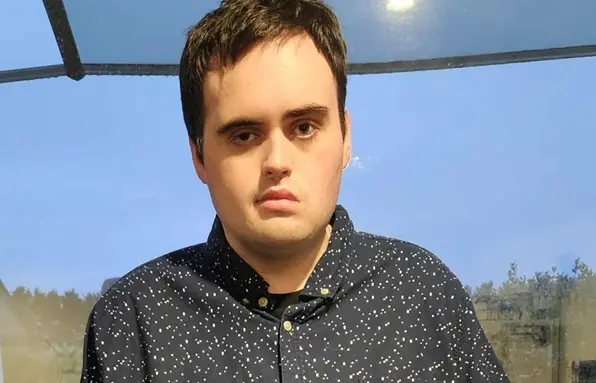Justus' story
Justus is leading the charge in encouraging young stroke survivors that there is hope.

Levin is a small town. It’s where Justus has spent much of his life.
“Everyone kind of knows each other,” he says, “Being in a small town, it's hard to get away sometimes and it's very likely that you're going to bump into someone you know.”
While most people his age were setting off to make their way in the world, sadly, Justus’ world was about to become a lot smaller.
At 18, Justus was a first-year commerce student in Wellington, majoring in accounting. He was just beginning to build what he calls the foundations of his adult life when everything changed. He wanted to get all his ducks in a row before heading overseas.
Those plans would change overnight when he collapsed at a night club. He has no recollection of what happened.
Initially misdiagnosed and assumed to be intoxicated, because of his age, Justus was left untreated for six hours. He hadn’t had one drink. During his ordeal, Justus began having seizures.
The reality was Justus had experienced an intracerebral haemorrhage stroke, resulting in severe left-sided hemiplegia. Emergency brain surgery, a craniotomy, was required to relieve pressure on his brain. An infection complication would see Justus in emergency surgery fighting for his life with his family gathered to say their goodbyes.
But Justus did pull through. When he awoke in the ICU, he couldn’t speak or move. Surrounded by machines, he found the experience surreal and terrifying.
Justus would go on to spend nine months in Palmerston North Hospital’s rehab ward. His family fought fiercely for intensive rehabilitation before he came home. Justus’ dad, in particular, was his champion.
Justus had to relearn how to walk, talk, and navigate life again. His speech returned miraculously, though not through therapy. Institutionalised, leaving the hospital felt like stepping into an unfamiliar world.
One of the biggest things Justus had to learn, apart from walking and talking again, was how to ask for help. With his parents separating when he was young, he had always been quite independent. Asking for help was hard but necessary.
Justus now lives in a self-contained sleepout at his dad’s place in Levin. His independence has been significantly impacted. He’s lost mobility in his left arm and hand, which affects daily tasks.
Crunching the numbers is no longer an option either. Dyscalculia is a learning disorder that affects his ability to do maths. Much like dyslexia disrupts areas of the brain related to reading, dyscalculia affects the brain’s ability to calculate numbers.
Justus says his saving grace is routine.
“Swimming three times a week helps me get out of the house and see others. It helps me stay positive,” he says.
Justus is starting to see the world again. He’s travelled to Australia alone, to see his mum, several times now.
Socialising with peers was difficult at first. His mindset and life experiences had shifted so dramatically he found he could relate to older people better. But he’s pushing through and found a new purpose in advocating for others his age. He runs the Young Stroke Group of New Zealand.
Justus supports Stroke Aotearoa because raising awareness is critical.
“Stroke can happen to anyone—at any age, in any condition. Knowing the signs can save lives,” he says.
To fellow survivors, Justus says, “Never give up. Recovery can be lifelong. Be grateful for every day and keep pushing forward. Every gain is a little win.”
To loved ones, he urges, “Be an advocate. Don’t accept “No” from the system. Your support can change everything.”
The young man, who used to avoid seeing his peers on Levin’s streets is, in his own way, making his mark on the world. Justus’ experience has helped him gain wisdom and he’s finding purpose in passing this on.
He is grateful to be alive and to be able to help others.
From the ICU to a community leader, Justus has turned his adversity into advocacy.
Read about Justus Smiths' stroke on Stuff News here.